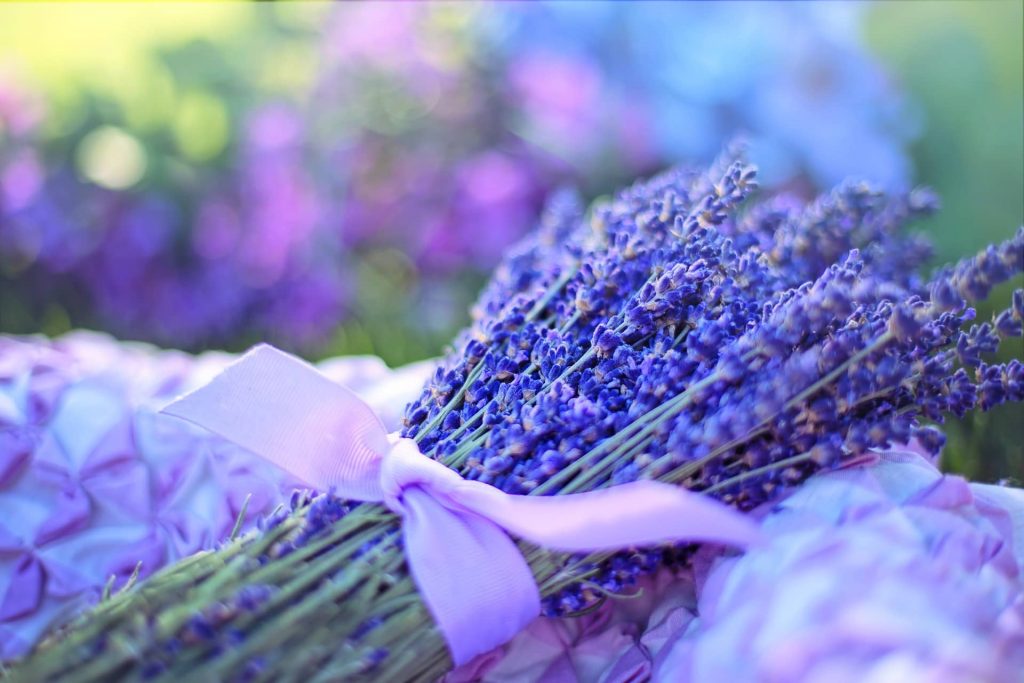Written by Sukhman Rekhi

As the leaves have started changing colors and the cold, wintry breeze is in the air, this can only mean that autumn is here. But as the temperature cools down, seasonal illnesses become more prevalent. With the debate between western medicine and alternative methods gaining more and more attention, an increasing number of Americans are starting to resort to holistic medicine rather than pharmaceutical treatments for common illnesses. In fact, the National Institutes of Health (NIH) recently conducted a study that found that nearly 33% of Americans have chosen unorthodox methods for healing, with one of the most popular being aromatherapy [1].
What exactly is aromatherapy? Aromatherapy is an ancient practice of using various essential oils and fragrances, to treat different conditions using the power of smell. Although not officially coined as a term until the 1930s, the use of aromas as curative medicine was used as early as 3500 B.C. and has now begun to regain popularity [6]. With that said, were our ancestors correct in using this form of therapy and should we still be using it?
Aromatherapy has claimed to be effective in treating headaches, anxiety, the common cold, depression, and insomnia, just to name a few illnesses it treats.. Combining the art and science of essential oils, the four most commonly used fragrances are lavender, eucalyptus, lemon and peppermint, each which all have a distinct purpose [2].
In particular, research has shown lavender oil to be most useful for curing headaches and migraines. In one study, 129 individuals who suffered from chronic migraines were told to smell the oil in intervals of 30 minutes, and upon reaching the end of two hours, 71% of the participants had zero to minimal migraine symptoms [3]. Lavender oil has a great effect on not just physical conditions, but also mental health concerns. Individuals who suffer from anxiety participated in another study using lavender oil as a mechanism of treatment. After 10 weeks of the clinical trial, 59% of individuals with mild to moderate anxiety showed a decrease in symptoms [4]. Other popular oils include eucalyptus, which has shown promise in curing infectious and anti-inflammatory diseases [2]; lemon, which uses its curative powers as a mood booster; and peppermint, which has evidence in lowering levels of stress and increasing alertness [5].
You may think that the curative use of aromatherapy may be too good to be true. However, according to extensive research, essential oils that are smelled and even used topically on the body are considered safe and generally have minimal side effects. So the next time you’re suffering through a health condition, perhaps smelling your sickness away will do the trick.
References:
1. Collins, Sam P.K. “With More Americans Turning to Alternative Medicine, Time to Assess its Effectiveness.” Think Progress. 17 Feb. 2015. Web. 19 Oct. 2017.
2. “The Newest Trends in Aromatherapy.” 4 Apr. 2017. Web. 19 Oct. 2017.
3. “Aromatherapy – Clinical Studies.” 26 Mar. 2015. Web. 20 Oct. 2017.
4. Appleton, Jeremy, N.D. “Lavender Oil for Depression and Anxiety.” Feb. 2012. Web. 20 Oct. 2017.
5. Babar, Ali, et. al. “Essential Oils in Aromatherapy: A Systemic Review.” 07 May 2015. Web. 20 Oct. 2017.
“The History of Aromatherapy.” Quintessence Aromatherapy. Web.